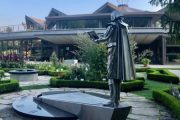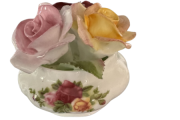For the first time after nearly half a century, I finally returned to Songzi, my native town located close to the Yangtze River, where I decided to spend a whole week trying to fulfill my growing nostalgic needs.
After doing much detective work, I found Yao, my oldest friend who was said to have fallen mentally ill since his mid-thirties, and invited him for a dinner party at Du, the most famous local restaurant. Early on the evening of October 15, he showed up both in good time and in good spirits together with Bao, our mutual friend, a musical teacher at Songzi Old Age College.
Lean, white-haired, Yao walked towards me with a cane in his left hand. “So, you’re really Ming?” he said, his eyes sparkling with wonder, “Long long time no see!”
“When did we see each other last time?” Bao chimed in.
“Fifty one years ago,” I replied.
Sitting down around the table, we began by recalling our childhood pranks. To Bao, the most memorable experience we three shared was the snake episode which created a big stir on campus when we were eleventh graders. As the best slingshot hitman of the whole school, Bao killed a long black soake, which I skinned off and cooked in my home. Yao swallowed its spleen supposedly to make his eyes sharper; I bloated the skin into a stuff and later put it randomly in a different classroom on a different school day.
The moment the main course called Du Family Rooster, a hotpot of a whole rooster fried and stewed with a lot of rapeseed oil and chillies, was put on the table, I stood up and told them both to dig in. When I mentioned how I had tried to beat Yao in our second year in elementary school by bragging about my father as his father’s inferior in the county government, he laughed good-naturedly at my foolishness and went on to remind me how I once flexed my hillbilly hairstyle a few years later when I returned to the town from a village school.
To him, the most important part of our high school life was our young ambitions. He well remembered how I had longed to become a poet, Bao a musician, and he himself a Chinese Van Gogh. Knowing that Bao had realized his boyish dream and I had become a most widely published author of English poetry from contemporary China, Yao told us proudly that he had produced more than fifty books in addition to thousands of paintings, though neither a single page of words nor a single picture had ever appeared anywhere except in his own dwelling place.





